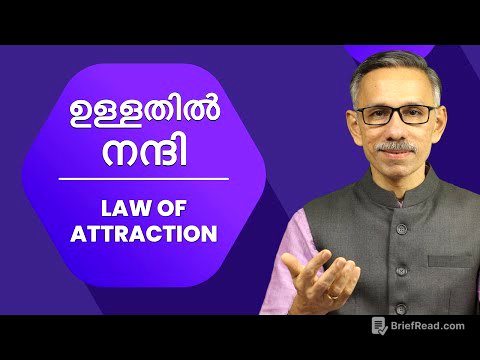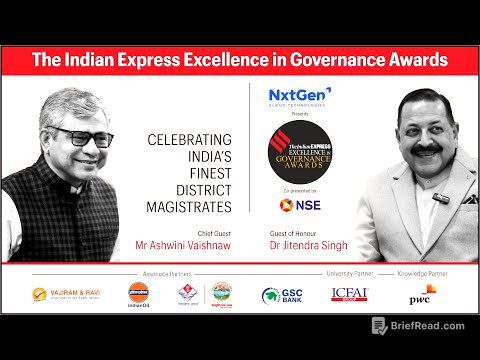TLDR;
The speaker recounts a profound experience where he encountered Jesus, leading to a complete shift in his understanding of success, purpose, and what truly matters. He shares seven key truths that crystallized in his mind following this encounter, which challenge conventional notions of achievement, failure, wealth, leadership, innovation, time, and legacy. He encourages viewers to consider placing God at the center of their lives, trusting in His plans, and finding fulfillment in a relationship with Him rather than in worldly accomplishments.
- God isn't impressed by achievements the way we think He should be.
- God uses our failures differently than we do.
- Wealth isn't a scorecard, it's a tool.
- The most important part of leadership isn't convincing other people to follow you, it's making sure you're following the right thing yourself.
- True innovation isn't about impressing people with how clever you are, it's about discovering the solutions that God wants to bring into the world through you.
- Sometimes the most important breakthroughs come from slowing down, not speeding up.
- The only legacy that ultimately matters is whether you helped other people discover their relationship with God.
The Unexpected Encounter [0:00]
The speaker describes a late-night work session where he felt an overwhelming sense of emptiness despite his career achievements. He realized that he had been optimizing for the wrong variables and began questioning the true meaning of his accomplishments. During this moment of introspection, he experienced a profound encounter with Jesus, which challenged his understanding of success and purpose.
Seven Transforming Truths [2:46]
The speaker shares seven key truths that became clear to him after his encounter with Jesus. First, God isn't impressed by achievements the way humans are; He is more interested in trust and faithfulness. Second, God uses failures as opportunities for growth and reliance on Him, rather than viewing them as catastrophic setbacks. Third, wealth is a tool for serving God's purposes, not a scorecard for measuring personal value. Fourth, leadership is about following God and helping others discover their calling, rather than simply directing them. Fifth, true innovation comes from divine inspiration, not just human ambition. Sixth, God's timing is different from human timing, and sometimes slowing down is more valuable than speeding up. Finally, the only legacy that truly matters is helping others discover their relationship with God.
Addressing Different Perspectives [8:56]
The speaker addresses different groups of people who may be watching, acknowledging their unique perspectives and struggles. For those who are successful but feel empty, he explains that this emptiness is a sign of their need for a relationship with God. For those who feel they haven't accomplished much, he emphasizes that God values faithfulness and heart posture over impressive achievements. For those who have been hurt by religion, he clarifies that Jesus is different from the misrepresentations they may have experienced. And for those who have been following Jesus but have fallen into legalism, he encourages them to remember that God's love is unconditional and based on His choice to love them.
Trusting God with Everything [11:35]
The speaker shares that the most important decision he made was to stop trying to manage his relationship with God and start trusting Him to manage everything else. This means working hard without anxiety, solving problems without seeking credit, and planning for the future with flexibility. It also means praying for guidance, reading the Bible as a source of love and wisdom, and serving others as an expression of God's love.
A Prayer of Surrender and Trust [13:29]
The speaker leads a prayer, thanking God for His patience and acknowledging the tendency to optimize for the wrong things. He asks for forgiveness for excluding God from their lives and treating Him like a consultant rather than the architect. He prays for those who have never started a relationship with God, asking that they would understand His love and have the courage to trust Him. For those who have been following God in their own way, he asks for help in surrendering control and working with Him. He asks for wisdom to use their talents and resources to serve God's kingdom and love others, and to represent God accurately to the world.









